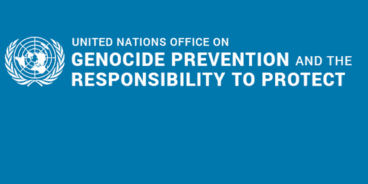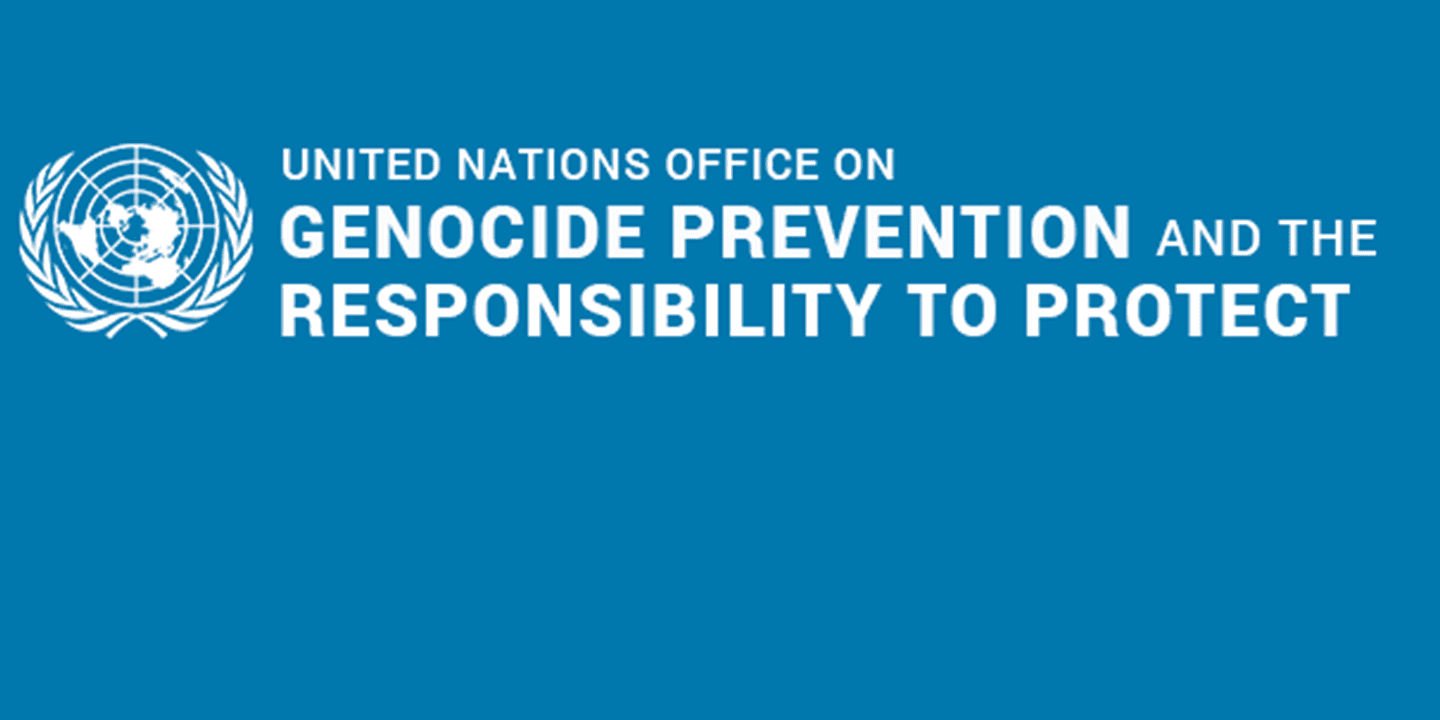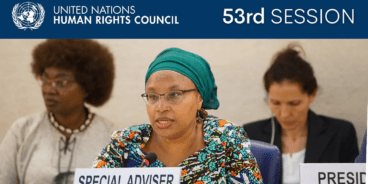

Statement by the UN Special Adviser on the Prevention of Genocide on developments in Ukraine and the need to reinforce prevention efforts in the Western Balkan region in light of that situation
The Special Adviser on the Prevention of Genocide, Alice Wairimu Nderitu, expressed her dismay and condemnation at the disturbing event at Bucha, with indication of hundreds of victims deliberately targeted, which point to very serious signs of possible commission of war crimes. The Special Adviser echoed messages by the Secretary-General, the High Commissioner for Human Rights and the United Nations Resident Coordinator in Ukraine for an immediate ceasefire and an effective and independent investigation leading to criminal accountability over the killing of civilians in this location.
In parallel, Special Adviser Wairimu Nderitu reiterated her call for the intensification of diplomatic efforts to bring an end to this conflict, as well as for the protection of civilians and the extension of humanitarian corridors so that risks against them can be mitigated. The Special Adviser reminded the parties of their obligations under international human rights and international humanitarian law and called on them to abide by those obligations in the conduct of their operations. “Only the end of hostilities will bring peace to the homes of terrorized citizens, but even in conflict they should never be deliberately targeted. International law must be upheld at all times,” emphasized the Special Adviser.
At the same time, Special Adviser Wairimu Nderitu alerted on the impact of this crisis in other regions in Europe. Specifically, thirty years since the start of the military siege of Sarajevo, she called on all actors in position of responsibility to strengthen efforts for prevention in the region of the Western Balkans, in light of existing concerns and grievances from the painful legacy of the past being exacerbated by dynamics of deterioration associated to the ongoing conflict in Ukraine.
The Special Adviser noted that she undertook her first official visit to Bosnia and Herzgovina, in June 2021, followed by official visits to Serbia and Montenegro in November that year. “In my visits to the region, many interlocutors have alluded to serious absence of trust, insufficient commitment to healing and trust-building by political leaders – including derogatory rhetoric by some, even amounting to hate speech –, dynamics of division being exacerbated for political purposes, and insufficient space for the work of local peace champions to take root in a soil which – for all the reasons above – remains less than fertile. All of this has taken a turn for the worse, not for the better, within the last few months.”
In the view of the Special Adviser, “in the last six weeks, the conflict in Ukraine has deteriorated some of these dynamics. A number of my interlocutors in the region have shared graphic information on displays of hatred in response to the conflict in that country which should constitute an alert call for all of us. Open vindication of violence against members of one national group, appeal to religion as a source of legitimacy for violence, or alignment of national pursuits to the cause of warrying parties in the Ukraine conflict do not only constitutes symptoms of insufficient healing in a region where conflict was present; they are also signs that the risk of recurrence is real and serious.”
The Special Adviser also noted that, next to those who are seeking to exploit the Ukraine crisis to advance division and hatred in the Western Balkans, stand citizens who cannot but feel anxious as the sounds and sights of Kyiv, Kharkiv or Mariupol bringing back everything they endured in the 1990s.
Special Adviser Wairimu Nderitu also alluded to a number of international actors alerting of the risk of ‘spill-over’ from Ukraine to other regions in Eastern and East-Central Europe. In her view, while the geo-strategical circumstances under which such risks could materialize remain uncertain, “we should not question the fact that the Western Balkans remain of critical significance for key players whose geo-strategic interests meet in this region. It is not surprising that anxiety raises when disputes over geo-strategic interest are generating insurmountable costs in Ukraine.”
At the same time, the Special Adviser emphasized that the main source of division in the region continues coming from the inside rather than the outside, and that therefore the most solid risk mitigation efforts will also need to come from the region itself. In this respect, she underlined the need to prioritize reinforcing initiatives aimed at bringing people together in a region where they are often pulled apart. In her view, “this is a time to advocate for moderation by those in a position of leverage, from political to religious to community leaders, who can lead the way in building trust among the different ethnic, national and religious groups in the region. It is a time to empower peace champions who continue bringing change in their immediate communities, but that often lack the visibility and support their work requires to be replicated elsewhere. It is a time to counter hate speech with messages of openness and understanding. It is a time, in short, to build peace from the top down and from the bottom up, day in and day out.”
Special Adviser Wairimu Nderitu expressed her intention to conduct new visits in the region, not only to reinforce her commitment to healing and trust-building, but also to actively support those who tirelessly work to advance such efforts. “Peace-builders will continue to be instrumental in building a future free of genocide and other atrocity crimes. The time to support them is now.”
Related Content


